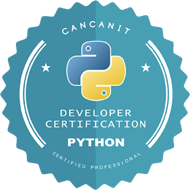
Python Certification
Are you a professional software engineer? Do you code Python v.3?
Do you want to prove your skills to gain recognition?
Then, there's just one thing to do next: the CancanIT Python Certification!
Certification Exam Process:
Python Certification proves your knowledges and skills in Python language. Certification process consists of two parts: theory questions & answers test, and practice coding task.
Theory test consists of 20 single and multiple choice questions by 1.5 minutes each. You'll need to correctly answer at least 15 of 20 questions to pass the test.
Practice task is the second part of certification process. It goes after the theory test part, and you can complete it at once or later another day. You will be asked to complete a small "real-life" coding task online: develop a custom script, class, or a function with Python3. Time to complete this practice task is an average of about 60 minutes, and may vary depending on the particular chosen task. CancanIT online exam environment automatically checks your code right off, and there is no need to wait for the manual verification check.
Applicants are allowed to have unlimited multiple attempts at all tasks. Questions are randomized and an applicant may get a new version for each attempt. There is no penalty for failing certification exam, and it's free to retake the test after 24 hours.
Python Certification Covers:
Certification (both its theory and practice parts) is targeted for Python 3 (specifically: 3.4) version. The following topics are covered during certification process:
- Values, types, and variables
- Operators and statements
- Functions
- Iteration, loops
- Lists, list operations
- Dictionaries
- String manipulation, serialization
- Objects and classes
- File operations
- Regular expressions
- Using databases and SQL
- HTTP, HTML, web services
Certificate Issuance & Costs:
Python programmer certificate is recognizable way to present yourself as the high-qualified software engineer. The certificate is issued both online as a publicly accessible web-page at cancanit.com website, and optional paper document. Paper certificate is not mandatory and is sent upon request by high priority mail for additional fee. It is printed on a special certificate template blank and includes holographic protection. You can see the example scanned certificate here.
Certification cost is USD $140.00. Optional paper printed certificate delivery costs USD $60.00 one-time. All payments are powered by PayPal® and protected by CancanIT clear & risks-free refund policy. The costs above are final. There are no hidden costs or fees attached to any CancanIT certification program.
Group certification plans
Need to certify 3 or more people?
We offer flexible, cost-effective certification for your agency, school, or company.
Get certified
Pass exam & get your certificate online already today:
Suggested Reading:
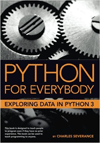
Python for Everybody: Exploring Data in Python3
Programming and software development approach through the lens of exploring data. Code materials are available under a Creative Commons License.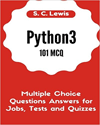
Python3 101 MCQ by S. C. Lewis
Multiple Choice Questions Answers for Jobs, Tests and Quizzes for Python 3. If you're a teacher who is teaching Python, you'll find this book useful as a tool to know how much your students have learned.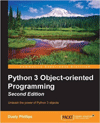
Python 3 Object-Oriented Programming by Dusty Phillips
Great tutorial for advanced level engineers who already have basic Python skills and want to dive deeper into OOP design. This book fully explains everything about classes, inheritance, polymorphism, abstraction, data encapsulation, and exceptions in Python 3.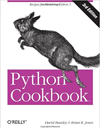
Python Cookbook, 3rd Edition by David Beazley and Brian K. Jones
This book is targeted for experienced Python programmers who want to focus on modern tools and features. Consists of numerous recipes and code samples you can use in your projects. Written and tested with Python 3.3.